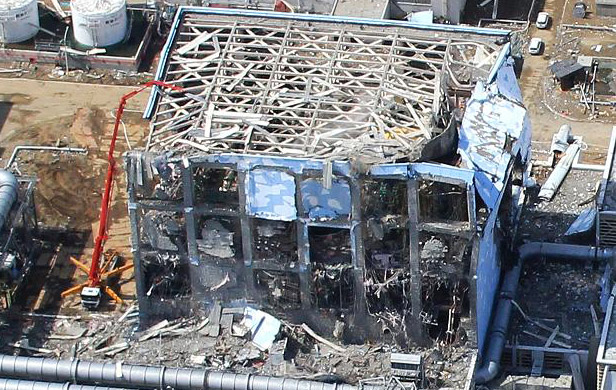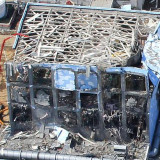
TOKYO – Japanese regulators on Wednesday gave final approval for removing fuel rods from an uncontained cooling pool at a damaged reactor building considered the highest risk at a crippled nuclear plant.
Removal of fuel rods from the Unit 4 cooling pool is a first step in decommissioning the plant where three reactors melted down after the March 2011 earthquake and tsunami, a process expected to last decades.
The Nuclear Regulation Authority said at its weekly meeting the proposal by the plant operator, Tokyo Electric Power Co., is appropriate and the removal can start in November as planned.
The Unit 4 reactor was offline when the Fukushima Daiichi plant was hit by the disasters, but the building was damaged by hydrogen explosions and fire.
TEPCO has reinforced the structure and says the building can survive a major quake, but the unit’s unenclosed pool containing 1,533 fuel rods has caused international concern.
The company has prepared a massive, steel structure that comes with a remote-controlled crane to remove fuel rods, which would be placed into a protective cask and transferred to a joint cooling pool inside a nearby building, which is much lower and considered safer.
The Fukushima plant has had a series of mishaps in recent months, including radioactive contaminated water leaks from storage tanks, adding to concerns about TEPCO’s ability to safely close down the plant.
Read The Common Sense Canadian story “Fukushima Reactor 4: The most important story nobody’s talking about” for a comprehensive account of the risks of these 1,500 spent fuel rods pose.

